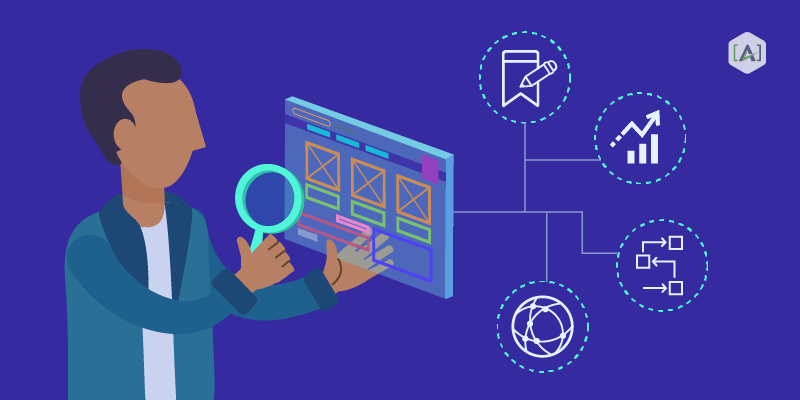Make an informed decision for your website’s CMS with Techtenstein’s detailed comparison guide, exploring the features, benefits, and suitability of popular CMS platforms to meet your specific needs and goals.
Selecting the appropriate Content Management System (CMS) is a critical decision for any website owner. With numerous options available, each boasting unique features and functionalities, finding the right CMS can be daunting. In this comprehensive comparison guide, Techtenstein provides an in-depth analysis of popular CMS platforms, helping you make an informed choice that aligns with your website’s requirements and objectives.

1. WordPress
- Overview
- Introduce WordPress as the most widely-used CMS globally, known for its user-friendly interface, extensive plugin ecosystem, and robust community support.
- Key Features
- Highlight WordPress’s flexibility, scalability, and customization options, including themes, plugins, and content management capabilities.
- Pros and Cons
- Discuss the advantages of WordPress, such as ease of use and vast plugin availability, along with potential drawbacks like security vulnerabilities and scalability limitations.
2. Drupal
- Overview
- Introduce Drupal as a powerful and flexible CMS favored by enterprises and large organizations for its robustness, scalability, and security features.
- Key Features
- Highlight Drupal’s advanced content management capabilities, multisite functionality, and built-in security features, suitable for complex websites with high traffic volumes.
- Pros and Cons
- Discuss the strengths of Drupal, including its robust architecture and scalability, as well as potential challenges such as a steeper learning curve and higher development costs.
3. Joomla
- Overview
- Introduce Joomla as a versatile CMS suitable for both small businesses and large enterprises, known for its ease of use, extensibility, and multilingual support.
- Key Features
- Highlight Joomla’s intuitive user interface, extensive template library, and powerful content management features, making it suitable for various types of websites.
- Pros and Cons
- Discuss the advantages of Joomla, such as its user-friendly interface and strong community support, along with potential drawbacks like fewer plugins and extensions compared to WordPress.
4. Magento
- Overview
- Introduce Magento as a leading CMS for e-commerce websites, renowned for its robustness, scalability, and comprehensive e-commerce features.
- Key Features
- Highlight Magento’s advanced product management capabilities, built-in marketing tools, and scalability, making it ideal for businesses of all sizes.
- Pros and Cons
- Discuss the strengths of Magento, including its extensive e-commerce functionalities and customizable design options, as well as potential challenges such as higher development costs and technical complexity.
5. Shopify
- Overview
- Introduce Shopify as a popular hosted e-commerce platform, offering an all-in-one solution for building and managing online stores with ease.
- Key Features
- Highlight Shopify’s user-friendly interface, seamless integration with payment gateways, and extensive app store, making it ideal for beginners and small businesses.
- Pros and Cons
- Discuss the advantages of Shopify, such as its ease of setup and management, along with potential limitations like transaction fees and customization restrictions compared to self-hosted solutions.
6. Wix
- Overview
- Introduce Wix as a beginner-friendly website builder with integrated hosting, offering drag-and-drop functionality and customizable templates.
- Key Features
- Highlight Wix’s intuitive website editor, extensive template library, and built-in marketing tools, making it suitable for small businesses and personal websites.
- Pros and Cons
- Discuss the strengths of Wix, including its ease of use and affordability, as well as potential drawbacks like limited customization options and dependency on Wix’s hosting platform.
7. Squarespace
- Overview
- Introduce Squarespace as a popular website builder known for its elegant templates, integrated design tools, and all-in-one platform.
- Key Features
- Highlight Squarespace’s responsive design, built-in SEO features, and integrated analytics, making it suitable for creative professionals and small businesses.
- Pros and Cons
- Discuss the advantages of Squarespace, such as its sleek design and user-friendly interface, along with potential limitations like fewer customization options compared to self-hosted solutions.
8. Comparing Features and Functionality
- Ease of Use
- Compare the user-friendliness of each CMS, considering factors such as the learning curve, intuitive interface, and ease of customization.
- Scalability
- Evaluate the scalability of each CMS, assessing their ability to handle growing website traffic, content volume, and complex functionalities.
- Customization Options
- Compare the customization options offered by each CMS, including themes, plugins, and code-level customization capabilities.
- Security
- Assess the security features and measures implemented by each CMS to protect against vulnerabilities, malware, and cyber threats.
- SEO-Friendliness
- Evaluate the SEO capabilities of each CMS, including built-in SEO tools, URL structure, and metadata optimization features.
9. HubSpot CMS
- Overview
- HubSpot CMS is an all-in-one platform combining content management, marketing, and sales tools, aimed at businesses looking for integrated solutions.
- Pros
- Explore HubSpot’s seamless integration with marketing automation tools, personalized content features, and robust analytics dashboard.
- Cons
- Address potential limitations in customization compared to standalone CMS platforms, higher pricing tiers for advanced features, and reliance on the HubSpot ecosystem.
10. Ghost
- Overview
- Ghost is a modern CMS focused on publishing and blogging, offering a minimalist interface, fast performance, and built-in SEO features.
- Pros
- Highlight Ghost’s simplicity, speed, focus on content creation, and native support for memberships and subscriptions.
- Cons
- Discuss limitations in customization compared to more versatile CMS platforms, smaller plugin ecosystem, and potential learning curve for new users.
Choosing the right CMS for your website is a pivotal decision that can significantly impact its success and performance. By carefully evaluating the features, benefits, and suitability of popular CMS platforms, you can make an informed choice that meets your specific needs and goals. At Techtenstein, we understand the importance of selecting the right CMS for your website, and we’re here to help you navigate the options and build a digital presence that drives results. Contact us today to learn more about our web development services and how we can assist you in choosing the perfect CMS for your website.



